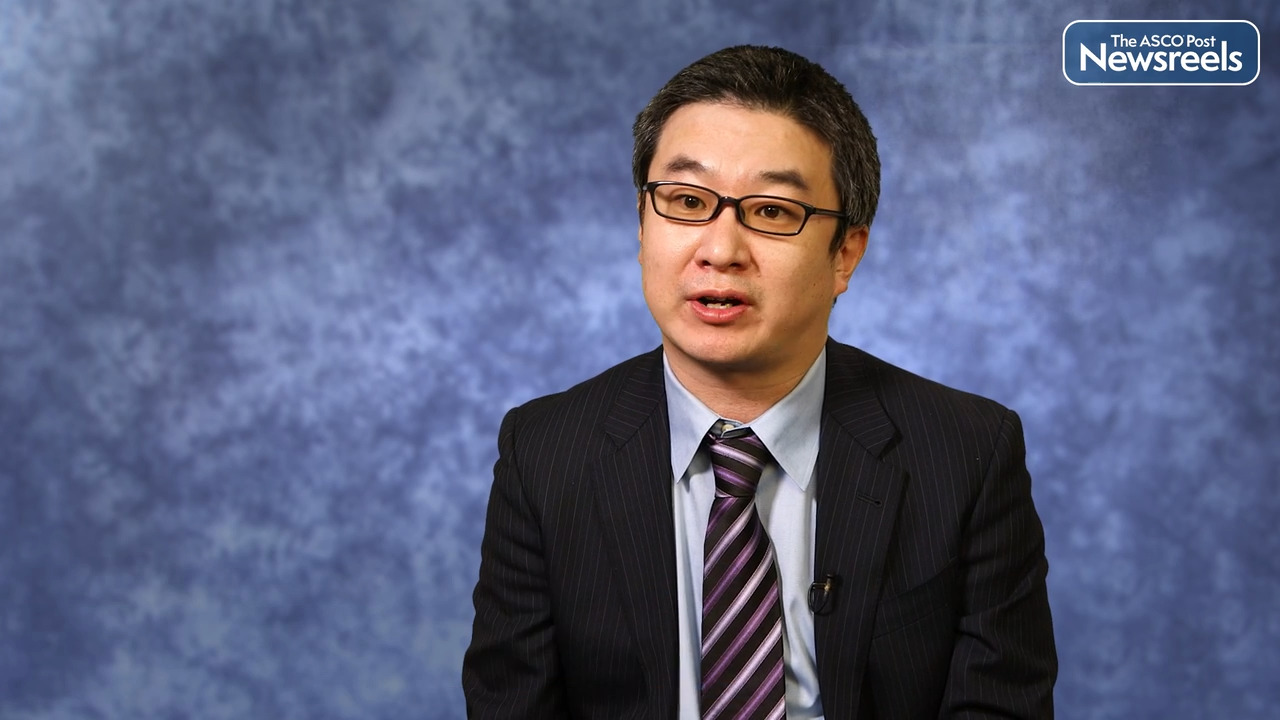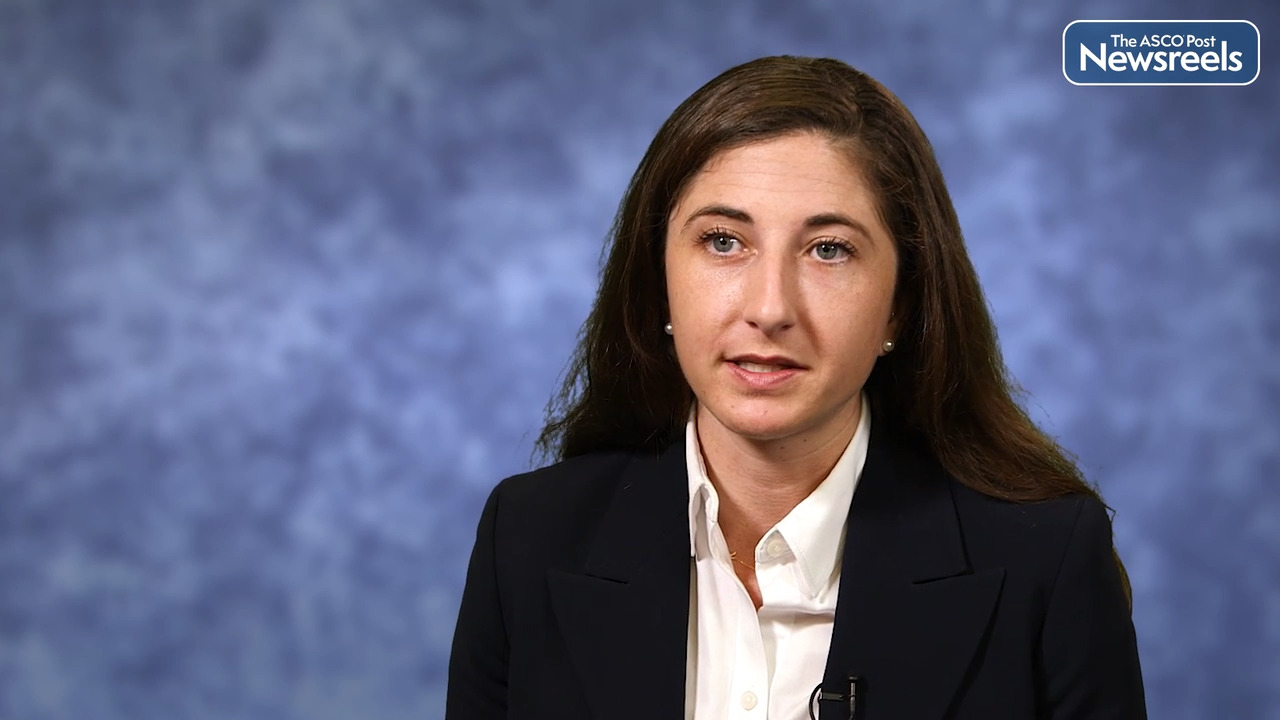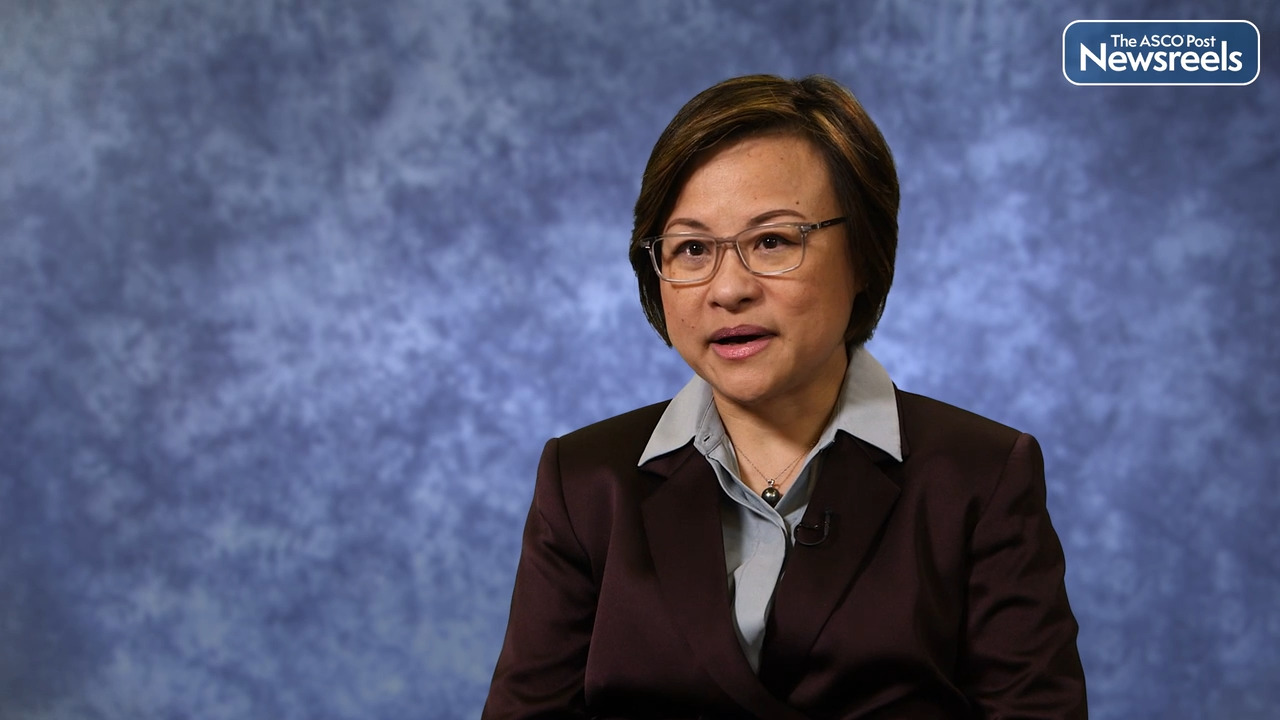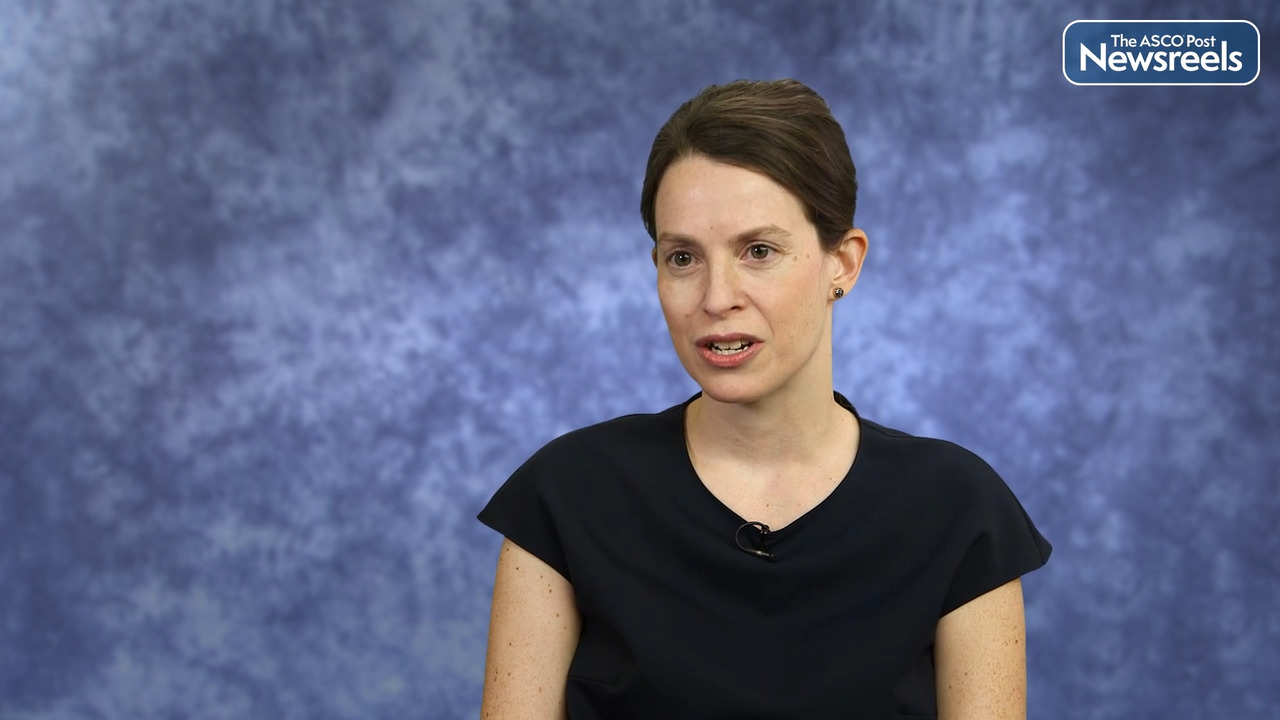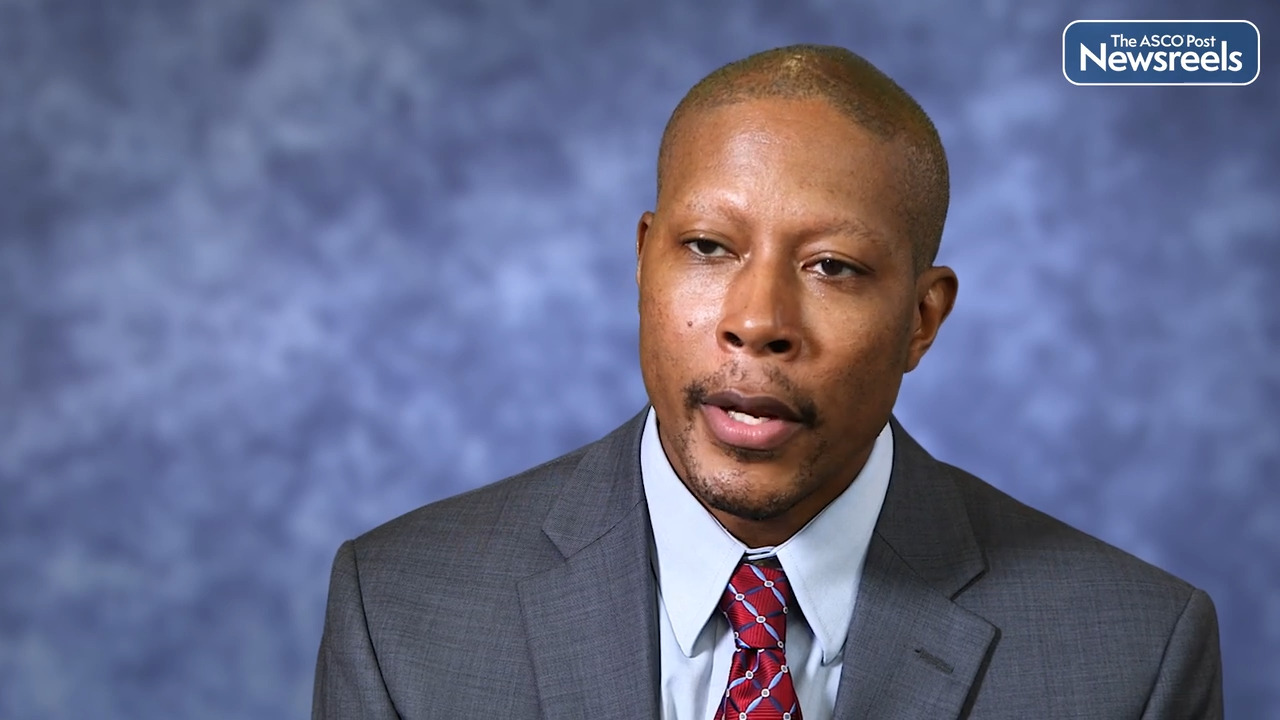Anand P. Jillella, MD, on Acute Promyelocytic Leukemia: A Simplified Patient Care Strategy to Decrease Early Deaths
2022 ASH Annual Meeting and Exposition
Anand P. Jillella, MD, of Georgia Cancer Center at Augusta University, discusses results from the ECOG-ACRIN EA9131 Trial, which showed that using a simplified treatment algorithm and management recommendations made by a group of specialists, resulted in a dramatic improvement in 1-year survival of patients with acute promyelocytic leukemia (Abstract 421).
Transcript
Disclaimer: This video transcript has not been proofread or edited and may contain errors.
Acute promyelocytic leukemia is a highly aggressive but very curable leukemia. The current standard of care is all-trans retinoic acid and arsenic trioxide with or without chemotherapy. In clinical trials, about 95% to 98% of patients are cured. The induction death or early death, which is death within the first 30 days after diagnosis, is under 5%, and the relapse rate is less than 2%. So virtually everyone who survives induction is cured of their leukemia. However, that is not the case in the general population because in clinical trials the patients are usually younger and do not have any comorbid conditions. Whereas in the general population, you have older patients who might have other health issues. About 30% of patients do not survive induction or die during the first month after diagnosis. The one-year survival among all comers is about 60% to 70%.
The only way to decrease survival among the general population is to decrease early deaths. The purpose of the ECOG-ACRIN 9131 trial was to decrease the induction mortality from an estimated 30% to less than 15%.
At the Medical College of Georgia, in Augusta, Georgia, we recognized this as a problem way back in 2009. We evaluated our own experience and realized that 37% of our patients died within the first month after diagnosis. So we critically analyzed the problem and came up with a plan to decrease early deaths. Number one, we wrote a treatment algorithm or an operating procedure, which is a simplified procedure that tells you exactly how you have to manage the patient and the complications. The second thing is it is a rare disease, so we set up a panel of four experts. If there was a patient with APL in the community, the community oncologist would call one of the experts. The expert and the community oncologist would determine a consensus treatment plan, and the patient would be treated locally in the community but with ongoing communication with the APL expert. In this pilot trial, we accrued 120 patients. We had an early death rate of 8.5%.
We used a similar model in the ECOG-ACRIN 9131 trial. We used the same algorithm. We set up seven APL experts who were available 24/7, and we rolled it out nationwide. There were absolutely no exclusion criteria. Elderly patients or patients with other health issues were recruited into the trial. A total of 200 patients were accrued, and we had seven deaths, which is an early death rate of 3.5%. As best as I know, this is the only proven concept that decreases early deaths in APL. This concept has also been proven in Latin America. The next steps would be to find a way to scale this and find a sustainable way to implement this nationwide.
The ASCO Post Staff
Tomohiro Aoki, MD, PhD, of the University of British Columbia and the Centre for Lymphoid Cancer at BC Cancer, discusses a novel prognostic model applicable to patients with relapsed or refractory classical Hodgkin lymphoma who were treated with autologous stem cell transplantation. The model has shown the interaction between the biomarker CXCR5 on HRS cells (Hodgkin and Reed/Sternberg cells, hallmarks of Hodgkin lymphoma) with specific follicular T helper cells and macrophages, a prominent crosstalk axis in relapsed disease. This insight opens new avenues to developing predictive biomarkers (Abstract 71).
The ASCO Post Staff
Kathryn R. Tringale, MD, of Memorial Sloan Kettering Cancer Center, discusses an assessment of 559 patients with primary central nervous system (CNS) lymphoma and the factors associated with consolidation therapy selection, outcomes after consolidation therapy accounting for patient factors, and patterns of disease failure. The initial treatment response was prognostic and predictive of relapse patterns (Abstract 557).
The ASCO Post Staff
Jia Ruan, MD, PhD, of Meyer Cancer Center, Weill Cornell Medicine, and NewYork-Presbyterian Hospital, discusses trial results demonstrating that the triple chemotherapy-free combination of acalabrutinib, lenalidomide, and rituximab is well tolerated, highly effective, and produces high rates of minimal residual disease (MRD)-negative complete response as an initial treatment for patients with mantle cell lymphoma, including those with TP53 mutations. Real-time MRD analysis may enable treatment de-escalation during maintenance to minimize toxicity, which warrants further evaluation. An expansion cohort of acalabrutinib/lenalidomide/obinutuzumab is being launched (Abstract 73).
The ASCO Post Staff
Julie Côté, MD, of CHU de Québec–Université Laval, discusses findings from the Canadian Myeloma Research Group database, which showed that integrating bortezomib and lenalidomide into the autologous stem cell transplant (ASCT) sequence produces a median overall survival rate ≥ 10 years in most patients with newly diagnosed multiple myeloma. These observations highlight the contribution of post-ASCT maintenance, particularly lenalidomide given until disease progression, when used in multiple patient groups including those with and without high risk, as well as those requiring a second induction regimen (Abstract 117).
The ASCO Post Staff
Tycel J. Phillips, MD, of the City of Hope National Medical Center, discusses data that showed fixed-duration glofitamab monotherapy induced high and durable complete response rates in patients with mantle cell lymphoma (MCL) who received obinutuzumab pretreatment. This is one of the largest data sets and longest follow-ups reported with a CD20/CD3 bispecific monoclonal antibody for patients with relapsed or refractory MCL (Abstract 74).
